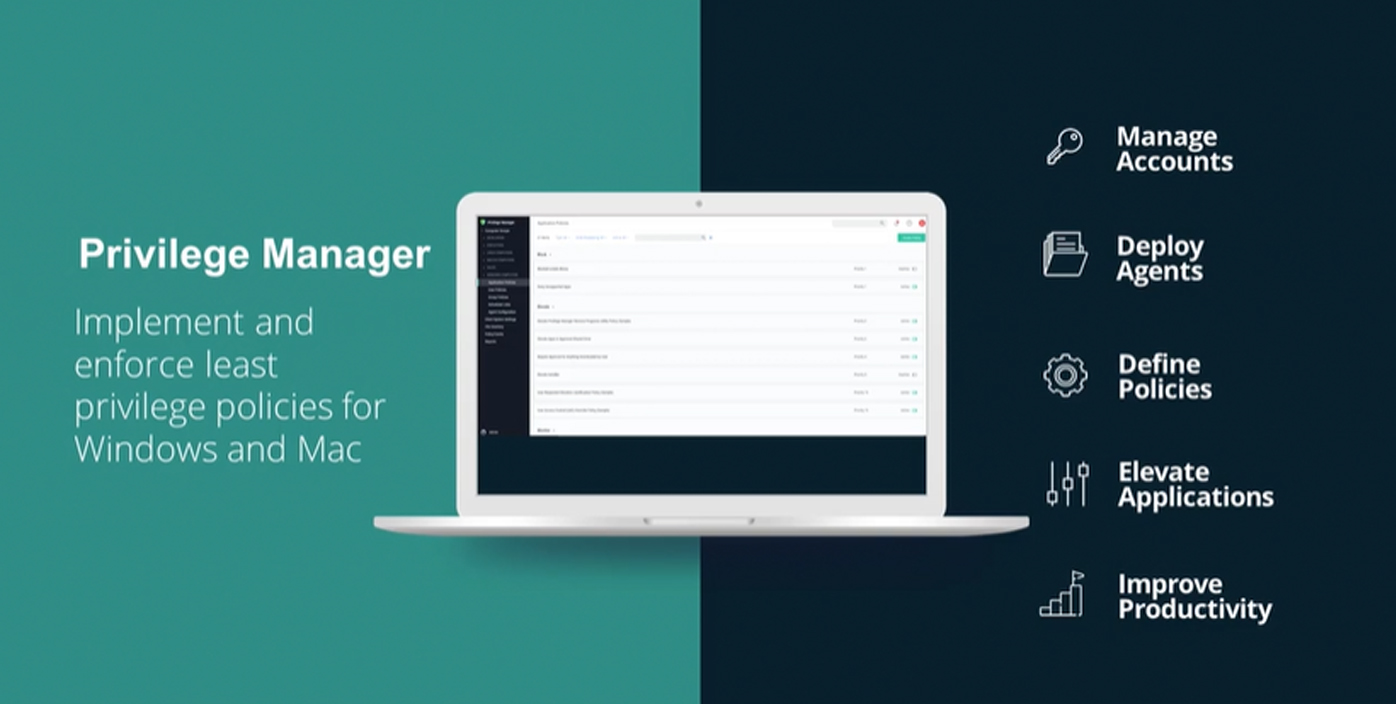 Thycotic, a provider of cloud-ready Privileged Access Management (PAM) solutions for more than 10,000 organizations worldwide released Privilege Manager 10.8 which uses advanced machine learning capabilities to better assist IT teams in securing employee workstations and servers. The company makes enterprise-grade privilege management accessible for everyone by eliminating dependency on overly complex security tools and prioritizing productivity, flexibility, and control.
Thycotic, a provider of cloud-ready Privileged Access Management (PAM) solutions for more than 10,000 organizations worldwide released Privilege Manager 10.8 which uses advanced machine learning capabilities to better assist IT teams in securing employee workstations and servers. The company makes enterprise-grade privilege management accessible for everyone by eliminating dependency on overly complex security tools and prioritizing productivity, flexibility, and control.
According to the SANS Institute, with 85% of cyberattacks starting at the endpoint, implementing least privilege on employee workstations is critical to prevent malicious actors from compromising one endpoint then moving laterally on the network.
Thycotic Privilege Manager 10.8 includes major improvements that not only significantly ease implementation of least privilege across the enterprise but accelerate endpoint security and application control through a completely new graphical user interface and advanced machine learning capabilities that automate policy creation.
"This release marks an important milestone in Thycotic's strategy to accelerate adoption of advanced privileged access security controls across the enterprise," said Jai Dargan, VP of Product Management at Thycotic. "As the latest Twitter hack and other spectacular data breaches have demonstrated, least privilege is a foundational security control across every user and system within the enterprise. We are committed to delivering solutions that are the most usable and widely adopted on the market, which this release demonstrates."
Many organizations look to remove local administrative rights on employee workstations, only to backtrack when legacy, appliance-based solutions require significant overhead and manual configuration. Likewise, removing local administrative rights for employee laptops is often met with resistance from business users. This dilemma often forces security teams to sacrifice endpoint security control in favor of business productivity.
The new policy wizard in Privilege Manager 10.8, along with integration into Thycotic's Privileged Behavior Analytics product, helps solve this challenge by making it easy for administrators to create and enforce least privilege policies while ensuring no interruption to business users' workflows. Thycotic's advanced machine learning engine scans the network to better understand which applications need to be controlled and how policies can be deployed to effectively control privileged activity on endpoints.
In addition, Thycotic announced recently the general availability of Thycotic Identity Bridge, which enables organizations to streamline authentication and authorization for diverse operating systems and platforms from a central directory. This reduces the attack surface, improves overall security, and accelerates adoption of key enterprise platforms, such as Red Hat Enterprise Linux.
Diverse flavors of Unix/Linux and siloed directories makes managing user identities and assigning consistent privileges challenging for IT teams. As a result, valuable time is wasted sifting through separate directories and audits are difficult to perform due to an inability to report on access across all systems. With Thycotic Identity Bridge, IT administrators use an organization's existing Active Directory infrastructure to simplify account provisioning and access control.
"With Thycotic Identity Bridge, IT teams can save time and rely on consistent data across all systems. Each user truly has one username, one ID, one password, one home directory," says Paul Harper, Director of Product Management at Thycotic. "Users like it because they have only one username and password to remember and there's no disruption to their work."
Thycotic Identity Bridge is easy to deploy, easy to manage, and a more affordable technology for organizations needing to simplify user, group, and computer management. Its open architecture allows for simple plug-and-play into existing directory infrastructures, including split and hybrid combinations of different centralized directories. Thycotic Identity Bridge, along with Secret Server, Thycotic's flagship PAM offering, allow IT to streamline management of both local and privileged accounts in hybrid multi-cloud environments, running on a single combined instance.
In the future, Thycotic will expand support of directories to LDAP, Azure AD, and existing and emerging federated directories and will support key enterprise platforms, such as Red Hat Enterprise Linux, CentOS, z/OS (mainframe-based Linux) and AIX. (Source: Thycotic)
By MediaBUZZ


